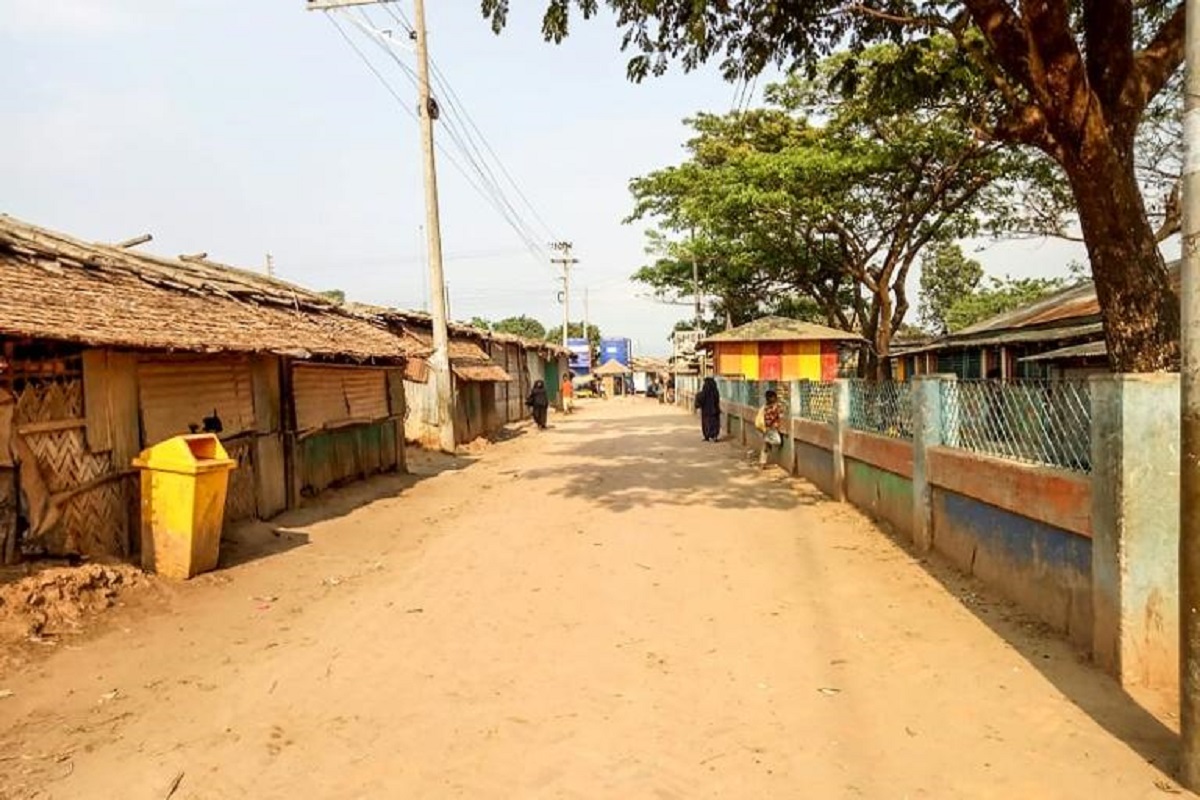A Rohingya man has become the first person to test positive for COVID-19 in the vast refugee camps in Bangladesh that are home to almost one million people, according to an officials on Thursday.
Health experts have long warned that the virus could race through the cramped, sewage-soaked alleys of the camps in the Cox’s Bazar district, where the persecuted Muslim minority have been housed in canvas and bamboo shacks since they fled a military offensive in neigbouring Myanmar more than two years ago.
Advertisement
Local health coordinator Abu Toha Bhuiyan initially said two refugees had been put into isolation.
Later, the World Health Organisation said one case was of a Rohingya man, and the other was of a local man who lived near the camp and was being treated at a clinic inside the area.
“One patient is from the refugee population and the other one from the surrounding host population,” WHO spokesman Catalin Bercaru told AFP.
Bercaru said “rapid investigation teams” were being deployed to follow up on the two cases. The patients’ contacts are being traced for quarantine and testing.
Earlier in April, Bangladesh authorities have put 34 Rohingya camps in Cox’s Bazar as well as the entire district on lockdown amid a surge in the number of coronavirus cases in the country.
Earlier, Bangladesh’s coast guard said at least 382 “starving” Rohingya refugees floating in a large boat in the country’s territorial waters after nearly two months at sea.
The first novel coronavirus case was confirmed in Bangladesh in early March, and the outbreak has since worsened with at least 283 people dead and nearly 19,000 infected — figures some experts say understate the true scale of the health crisis.
On Wednesday, the government planned to extend the ongoing lockdown to May 30 as the daily rate of new COVID-19 cases has continued to surge.
The shutdown of all offices, workplaces and public transport system has been in place since March 26 after the detection of the first coronavirus cases and fatalities in Bangladesh.
The government had extended it several times to May 16 at the earliest, but eased some curbs such as allowing factories to reopen.
In 2019, Myanmar authorities had verified 3,454 people for an initial round of returns from a list of 22,000 submitted by Bangladesh authorities.
The United Nations refugee agency UNHCR and Bangladesh authorities had said they are seeking to confirm that these refugees wish to return.
More than 740,000 Rohingya Muslims have fled to Bangladesh since August 2017 to escape the Myanmar military. They joined about 200,000 refugees who had fled previous waves of violence and persecution.











